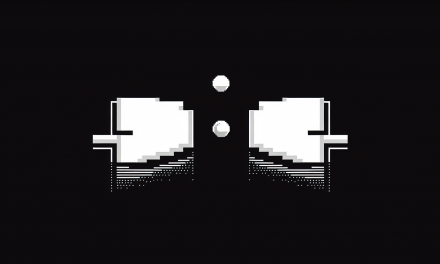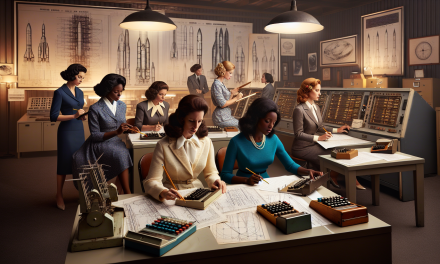
Picture this: you’re standing at a crossroads, but instead of two dirt paths stretching into a forest, you’re looking down dozens of brightly lit digital highways. Each one leads to a different destination—some familiar, others you’ve never heard of, and a few that didn’t even exist five years ago. Welcome to the landscape of coding careers, where the only constant is change, and the possibilities are as limitless as your imagination.
If you think coding means sitting alone in a dark room, typing mysterious symbols into a computer screen all day, you’re in for a delightful surprise. Just like how computers have evolved from room-sized machines to devices we carry in our pockets, coding careers have exploded far beyond the traditional idea of “computer programmer.” Think of coding as a superpower—once you have it, you can apply it to virtually any field that captures your interest.
The New Career Playground: Where Code Meets Everything
Let’s start with a mind-bending fact: according to recent labour market predictions, 60% of the jobs that exist today didn’t exist 80 years ago. And with AI accelerating technological change, new careers are popping up faster than mushrooms after rain. The U.S. Bureau of Labor Statistics projects that software development jobs will grow by 18%, information security by 33%, and data science by a whopping 36% in the coming decade.
But here’s where it gets really interesting—coding isn’t just creating new jobs in technology companies. It’s transforming existing fields in ways that would have seemed like science fiction just a generation ago. Modern farmers now use drones, satellites, and sensor data to optimise their crops. They’re not just planting seeds; they’re programming the future of food. Healthcare professionals are using wearable devices and massive datasets to personalise treatments in ways that were unimaginable when your parents were your age.
Think of coding as a universal language that lets you speak to machines, data, and digital systems. Once you’re fluent, you can work in any field that interests you—from sports analytics to space exploration, from music production to environmental conservation. The code becomes your toolkit, but the problems you solve are as diverse as human curiosity itself.
Beyond Software: The Unexpected Universe of Code-Powered Careers
Let’s take a journey through some career paths that might surprise you. Remember, these aren’t just jobs for “tech people”—they’re for anyone who wants to use technology to make a difference in areas they’re passionate about.
The Digital Artists and Creative Technologists: These are the people creating the stunning visual effects in your favourite movies, designing immersive video games, and building interactive art installations. They combine artistic vision with coding skills to create experiences that weren’t possible before computers. Companies like Pixar employ armies of technical artists who write code to make digital characters move realistically, while independent artists use programming to create interactive sculptures that respond to movement and sound.
The Data Detectives: Data scientists are like modern-day Sherlock Holmes, but instead of examining footprints and fingerprints, they analyse patterns in massive datasets to solve mysteries and predict the future. They might work for a streaming service, figuring out what movies you’d like to watch next, or for a health organisation, identifying early warning signs of disease outbreaks. The detective work is the same—following clues to reach conclusions—but the magnifying glass is replaced with programming languages like Python and R.
The AI Whisperers: Machine learning engineers and AI specialists are the people who train artificial intelligence systems. They’re not replacing human intelligence—they’re teaching machines to be better assistants to humans. One day they might be helping an AI understand medical images to assist doctors in diagnosing diseases; the next, they could be teaching a computer to recognise when someone sounds upset in a customer service call so a human can step in to help.
The Bridge Builders: UX (User Experience) designers and product managers are the people who make sure technology actually works for real humans. They study how people interact with apps and websites, then write code or work with programmers to make those experiences smoother and more intuitive. They’re solving the puzzle of how to make complex technology feel simple and natural.
The Renaissance Effect: Where Coding Meets Your Other Passions
One of the most exciting aspects of coding careers is that they don’t require you to abandon your other interests—they amplify them. This is what we might call the “Renaissance effect,” where coding becomes a tool that supercharges whatever you’re already passionate about.
Love marine biology? Marine biologists now use underwater robots and AI to study ocean life in ways that human divers never could. These bio-programmers write software to control underwater vehicles and analyse video footage captured in the deepest parts of the ocean. Fascinated by history? Digital humanitarians use computational methods to analyse historical texts, create virtual reality reconstructions of ancient cities, and preserve cultural heritage through interactive 3D models.
Sporting enthusiasts aren’t just watching games anymore—they’re using code to analyse player performance, predict game outcomes, and even design training programmes. Sports analytics has become so sophisticated that every professional team now employs people who understand both sports and statistics programming.
Even traditionally non-technical fields are discovering the power of coding. Journalists use programming to analyse large datasets for investigative stories. Musicians write code to generate new sounds and create interactive performances. Archaeologists use ground-penetrating radar and 3D modelling software to discover and document historical sites without disturbing the ground.
Tomorrow’s Jobs: Preparing for Careers That Don’t Exist Yet
Here’s a fascinating challenge: how do you prepare for a career that might not exist yet? The answer lies in understanding that coding teaches you a way of thinking—breaking down complex problems into smaller, solvable pieces and creating step-by-step solutions. These thinking skills transfer to almost any field.
Consider some emerging career paths that are just beginning to take shape. Ethical AI consultants help organisations ensure their artificial intelligence systems are fair and transparent. Climate data analysts use programming to model and predict environmental changes. Virtual reality therapists are exploring how immersive digital environments can help people overcome phobias and trauma. Space mission planners write code to navigate spacecraft and analyse data from other planets.
The key insight is that technological skills, combined with domain knowledge in any field, create opportunities to solve problems that previously seemed impossible. You don’t need to predict exactly which careers will emerge—you need to develop the problem-solving skills that will let you tackle whatever challenges the future brings.
Starting Your Journey: Practical Steps for Future Coders
The beautiful thing about starting a coding journey is that you can begin from wherever you are right now. You don’t need expensive equipment, specialised schools, or years of preparation. You need curiosity, patience, and the willingness to make mistakes and learn from them.
Begin by exploring what coding actually feels like. Try visual programming environments like Scratch, which let you create animations and games by snapping together code blocks like digital Lego. These tools teach you the logic of programming without worrying about memorising syntax. Once you’re comfortable with the concepts, you can graduate to text-based languages like Python, which reads almost like English and can be used for everything from creating websites to analysing scientific data.
Don’t feel pressured to pick your “forever” programming language immediately. Learning your first language teaches you foundational concepts that transfer to others. It’s like learning to drive—once you understand the principles, you can adapt to different vehicles. Most professional programmers know several languages and choose the best tool for each specific job.
Consider joining coding communities, both online and in your local area. Programming might seem like a solitary activity, but the reality is that it’s deeply collaborative. Programmers constantly help each other solve problems, share knowledge, and build on each other’s work. Find local coding clubs, participate in online forums, and don’t be afraid to ask questions. The programming community is generally welcoming to newcomers—everyone remembers being a beginner.
Building Your Future, One Line at a Time
Perhaps the most empowering aspect of coding careers is that they put you in the driver’s seat of technological change. Instead of just using technology, you get to create it. Instead of wondering how your favourite app works, you get to build the next one. Instead of worrying about whether robots will take your job, you get to design and program those robots to solve important problems.
The future workplace will likely be a hybrid of human creativity and artificial intelligence, where the most valuable people are those who can work effectively with both humans and machines. Coding gives you the language skills to communicate with machines while developing the problem-solving abilities that make you irreplaceable as a human.








